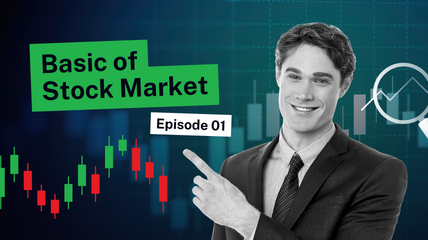Blog Details
Market Psychology: Understanding Mass Psychology

Market Psychology: Understanding Mass Psychology
Introduction
Market psychology plays a significant role in shaping price movements and trends in forex binary options trading. Understanding mass psychology, the collective behavior of market participants, can provide valuable insights into market dynamics and help traders make informed trading decisions. In this post, we will delve into the concept of mass psychology and its impact on market movements in forex binary options trading.
1. What is Mass Psychology?
a. Definition:
Mass psychology refers to the collective behavior, emotions, and sentiments of market participants, including traders, investors, and institutions.
It encompasses various psychological factors that influence decision-making processes and drive market trends and movements.
b. Key Components:
Greed and Fear: Greed and fear are two primary emotions that drive market participants' behavior. Greed can lead to overbuying and asset bubbles, while fear can trigger panic selling and market crashes.
Herd Mentality: Market participants often exhibit herd mentality, following the crowd rather than making independent decisions. This can lead to herd behavior, where trends become self-reinforcing.
Risk Aversion: Market participants' risk appetite and aversion can influence their trading decisions, affecting market liquidity and volatility.
Market Sentiment: Market sentiment, reflected in indicators such as the VIX (Volatility Index) or investor surveys, provides insights into prevailing attitudes and expectations.
2. Impact of Mass Psychology on Market Movements
a. Trend Formation:
Mass psychology plays a crucial role in trend formation, as collective sentiments drive buying or selling pressure, leading to sustained price movements.
Positive sentiment can fuel uptrends, while negative sentiment can trigger downtrends as market participants react to news, events, or economic data.
b. Price Reversals:
Shifts in mass psychology can precede price reversals, with euphoria or pessimism reaching extreme levels before trends exhaust and reverse.
Contrarian traders often capitalize on market sentiment extremes by taking positions against the prevailing trend, anticipating countertrend movements.
c. Volatility and Market Cycles:
Mass psychology influences market volatility, with periods of heightened fear or uncertainty leading to increased price fluctuations.
Market cycles, characterized by alternating periods of optimism and pessimism, are driven by shifts in mass psychology as market participants react to changing economic conditions and geopolitical events.
3. Applying Mass Psychology in Trading
a. Sentiment Analysis:
Monitor market sentiment indicators, news sentiment, and social media sentiment to gauge prevailing attitudes and sentiment extremes.
Contrarian traders may consider taking positions opposite to prevailing sentiment when sentiment reaches extreme levels, anticipating potential reversals.
b. Behavioral Analysis:
Study historical price charts and patterns to identify recurring behavioral patterns driven by mass psychology, such as herding behavior or panic selling.
Use technical analysis tools and indicators to confirm signals generated by mass psychology and identify potential entry or exit points.
c. Risk Management:
Incorporate risk management techniques to protect against adverse market movements driven by mass psychology, including setting stop-loss orders and managing position sizes.
Maintain discipline and emotional control to avoid succumbing to herd mentality and making impulsive trading decisions based on prevailing sentiment.
Conclusion
Mass psychology is a fundamental aspect of market dynamics in forex binary options trading, influencing trends, price movements, and market cycles. By understanding the psychological factors driving market participants' behavior, traders can gain valuable insights into market sentiment, anticipate potential trend reversals, and make informed trading decisions. By applying sentiment analysis, behavioral analysis, and risk management techniques, traders can navigate the complexities of mass psychology and achieve consistent profitability in the dynamic and ever-changing forex markets.
References:
Investopedia: Market Psychology
Psychology Today: Understanding Market Psychology









